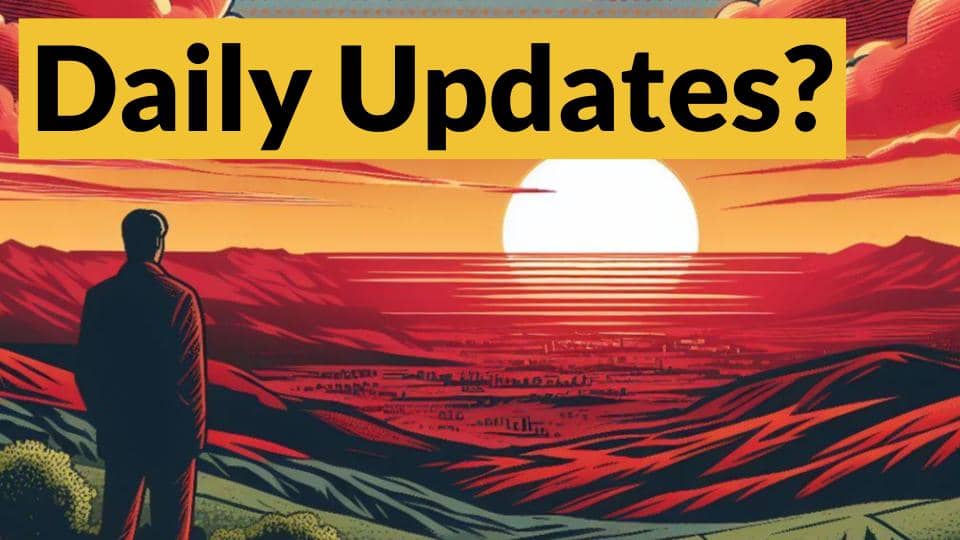Psychology of Teams: How to Keep Up To Date
How are small teams keeping everyone up to date? We research what other companies do. We have experimented on it. We haven’t found the silver bullet yet, but we state what works for us.

Related: Enable teams to make end of day videos + daily text updates from Dane Maxwell.
The problem
Daily Standup Meetings can have negative effects. Especially senior developers dislike them as the information densitiy is usually low.
And in any case, for team across multiple time zones they are not feasible. That’s the main reason we don’t use them.
However, we still want to get the benefits of team updates. So we tried a couple of things.
What we tried to do
- Daily “morning”: works for everyone. Saying goodbye: doesn’t work.
- Daily written updates for everyone: didn’t stick.
- Daily email updates: don’t work.
- Daily time logging: worked after I switched off the editing for past 1 day.
- Daily videos: we got it to work, will give the trick to do this in the end of the video
Personally I’d address this with: willpower.
We don’t have this in teams. I can ask people to work on a project, but I cannot ask them for “Additional willpower”
Problem 1: Incentivization
it’s a scale with two sides. In order to take action the benefits need to outweigh the drawbacks. And then we need a trigger to make the habit stick. We’ll get to that later.
| Drawbacks | Benefits |
|---|---|
| Perceived Lack of Autonomy | Praise from the team |
| Fear of Negative Evaluation | Help reach the team’s goal |
| Overwhelm | Feeling of accomplishment |
| Lack of Immediate Rewards | Duty “part of the job” |
| Social Loafing | |
| Ambiguity Aversion | |
| Perfectionism |
How do expert address this?
Probably James clear: habits. They need a trigger.
I wondered what our prophet huberman would say about it?
[ add some research here ]
I researched the issues that might keep people from making the updates
Perceived Lack of Autonomy: If team members feel that their updates are being micromanaged or don’t see the value in them, they might resist submitting them. People are more motivated when they feel a sense of autonomy and purpose in their tasks.
Fear of Negative Evaluation: Some individuals might delay or avoid submitting updates due to fear of judgment or criticism. This is especially true if their progress is not as expected or if they are struggling with their tasks.
Overwhelm: In high-pressure environments, team members may be too overwhelmed with their primary work responsibilities to prioritize updates. Chronic stress and burnout can diminish their capacity to manage additional tasks like status reporting.
Lack of Immediate Rewards: Human behavior is often driven by immediate rewards. If the submission of status updates doesn’t offer any immediate or visible benefits, team members might not be motivated to prioritize them.
Social Loafing: In group settings, individuals might put in less effort, assuming others will pick up the slack. This can translate into a lack of promptness in submitting updates, especially in larger teams.
Ambiguity Aversion: If the process or purpose of submitting updates is not clear, team members might avoid the task. People generally prefer to engage in tasks where the expectations and outcomes are clearly defined.
Perfectionism: For some, the desire to provide a perfect and comprehensive update can lead to delays. Perfectionists might postpone submitting updates until they feel they have something significant to report.
Problem 2: Triggers are missing
And then there need to be a trigger that makes the scale top to one side. That trigger can be an end of day routine, or seeing others do the same thing (that’s why it works in the morning).
Triggers work for our “morning” slack channel, where everyone writes Morning”
What other companies are doing
GitLab’s Video Sync
As a remote first company, Gitlab has it figured out. They made me think, if I’m not seeing it to black and white here.
Am I using the best format (written, verbal, video…) for this message?
This comes from their own playbook where they share all tips.
Facebook’s Zero Meeting Wednesdays
Zuck announced it in 2021 when employees came back to the office. Another study confirms that the sweet spot is around three meeting-free days per week.
Automattic’s Blog Updates
Automattic has an own portal where employees write down status updates. Of course it’s hosted on Wordpress. They offer it as a SaaS platform anyone can rent as well.
Zapier is also doing this. Here’s their blog post about it.
Virtual Stand-ups
There are several companies offering virtual standups via slack bots. Range is one of them. I like the visualization of how much money is wasted in standups. See the calculator here.
What we are trying now
Video recaps work best. Why
